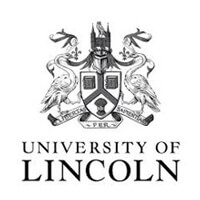fees waived
Criminology, BA (Hons)
University of Lincoln, United Kingdom
Subject ranking
UK / Times 2025 36th
UK / CUG 2025 48th
UK / Guardian 2025 50th
Costs
food & rentS$17K / year
Entry requirements
Scholarships
Unlimited quantity
Unlimited quantity
Unlimited quantity
Unlimited quantity
Limited quantity
Limited quantity
Information
Code
Code
Intakes
Website (External)
Programmes
Information
Duration
2028
Course summary
Lincoln’s Criminology degree is designed to enable students to develop and apply an understanding of the complex nature of crime, punishment and justice. Alternative solutions to crime prevention are examined, and the impact of crime on society is investigated. Teaching is research-informed and draws upon all aspects of the social sciences. Staff specialisms include youth culture, human rights, terrorism, resistance, punishment policy and policing. This course aims to offer specialist modules designed to complement each other while developing specific skills in criminological studies and research. The course places a strong emphasis upon not merely 'learning about' criminology, but also being able to apply that knowledge to real life issues and problems. Academic staff regularly contribute to national policy debates and encourage students to engage with key issues in the study of crime and criminal justice. Staff also work closely with local criminal justice agencies and professionals, such as police and youth offending services, enabling students to gain real-world knowledge. Students are encouraged to build links with employers and to develop transferable skills. The first year aims to provide a thorough grounding in criminology and social sciences in order to develop the knowledge and research skills necessary for further study. Second-year students engage with topics such as criminological theory in order to explore the potential causes of crime and the way these shape and are shaped by criminal justice responses. Third-year students can explore complex questions about the image and reality of human rights, and the problems and possibilities of different approaches to punishment. Optional modules in the second and third year enable students to tailor their studies to their career aspirations or areas of particular interest. For the most up to date module information, please visit the course page for this programme on our website. Some programmes provide you with the opportunity to focus your study in a particular area through optional modules. Timetabling arrangements may limit the availability of some optional modules to some students. As the options often reflect staff research interests, they may alter over time due to staff availability. The way students will be assessed on this course will vary for each module. It could include coursework, such as a dissertation or essay, written and practical exams, portfolio development, group work or presentations to name some examples. Throughout this degree, students may receive tuition from professors, senior lecturers, lecturers, researchers, practitioners, visiting experts or technicians, and they may be supported in their learning by other students.Modules
Assessment method
The first year aims to provide a thorough grounding in criminology and social sciences in order to develop the knowledge and research skills necessary for further study. Second-year students engage with topics such as criminological theory in order to explore the potential causes of crime and the way these shape and are shaped by criminal justice responses. Third-year students can explore complex questions about the image and reality of human rights, and the problems and possibilities of different approaches to punishment. Optional modules in the second and third year enable students to tailor their studies to their career aspirations or areas of particular interest. For the most up to date module information, please visit the course page for this programme on our website. Some programmes provide you with the opportunity to focus your study in a particular area through optional modules. Timetabling arrangements may limit the availability of some optional modules to some students. As the options often reflect staff research interests, they may alter over time due to staff availability.
A local representative of University of Lincoln in Singapore is available online to assist you with enquiries about this course.

